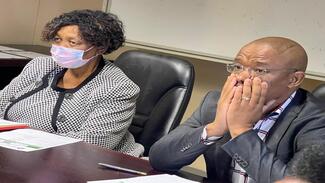In 2019, President Cyril Ramaphosa announced that the Early Childhood Development (ECD) sector would fall under the jurisdiction of a different governmental department which would impact the operations of the sector.

From April 2022 the operations of the ECD sector will be integrated into the Department of Basic Education (DBE). This move from the Department of Social Development was first mooted by Ramaphosa three years ago.
The President explained that the government has established a firm foundation for a comprehensive ECD programme that is an integral part of the education system.
One aspect of this was to ensure that children access compulsory ECD for two years before entering grade 1. An additional priority was to improve the reading comprehension in the first years of school
Ramaphosa said, “This is essential in equipping children to succeed in education, in work and in life and it is possibly the single most important factor in overcoming poverty, unemployment and inequality”.
Earlier this month, Basic Education Minister Angie Motshekga said the migration of the ECD to her department would allow for the crafting and implementation of innovative strategies to strengthen the foundation of learning.
She said, “For this reason, one of the key priorities that we have is to focus on this ECD shift which is going to begin from 1 April this year”.
Last year, ECD practitioners expressed their concerns to parliament regarding the migration. This as technical and structural issues remained unclarified.
Parliament said, “Despite this support, ECD teachers highlighted their frustration with the lack of clarity about the migration, especially because they are unsure about the impact it will have in the sector. They are particularly concerned about the absorption and training of ECD teachers, existing resources and plans, as well as ECD practitioners who are above the age of 60”.
Motshekga is currently participating in a roadshow to create awareness around the DBE’s programs and solicit the support and participation of the communities.
Read Also:


